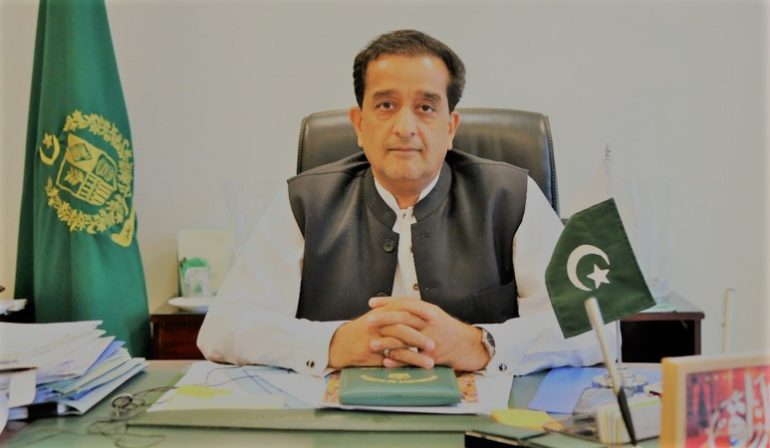On Monday (16 August) while speaking at an event, the Special Assistant to Prime Minister on Climate Change Malik Amin Aslam said that the electric taxi service for the northern areas of the nation was an innovative step towards environment-friendly connectivity.
While talking about the launching of an event, Mr. Amin Aslam said that best wishes for the coalition of the Sapphire Group and Faisal Movers as they are accepting the future in the field up to date on Flexibility and feasible growth. He added that for the first time Pakistan has introduced electric vehicle services in the northern areas of the country.
According to Mr. Amin Aslam, the new initiative would help to reduce the carbon footprint and air pollution in the nation. The de-carbonization would help to protect the natural environment of the northern area.
He said that “electronic taxi would be a great service for Gilgit Baltistan as the GB is facing the extreme impact of temperature rise which is leading to glacial lake outburst floods and snow slides.”
He said that we have a huge responsibility to preserve the environment as the fuel-based vehicle’s emissions are deleterious for the natural environment and ecology, Gilgit Baltistan has the biggest share of Pakistan’s tourism and we cannot befoul it.
Mr. Amin Aslam said that the electric taxi would save Rs 12,000 budget for the driver and which can lead to saving of Rs 2 billion in the oil imports.
Initially, the electronic taxi service would begin from Islamabad, Nathiagali, and Murree. Later the route would be extended to other hilly areas. The electric taxi has a powerful engine and battery capacity that would allow the vehicle to travel in hilly areas.
According to the company which has manufactured electric vehicles said that these vehicles can easily travel up to 250km with full battery charging.
Mr. Amin Aslam said, nowadays Pakistan’s massive issue is climate change. PTI government has begun many energy and forestry projects. He added that we are going to clean our energy blend by moving it to 60% renewable.



